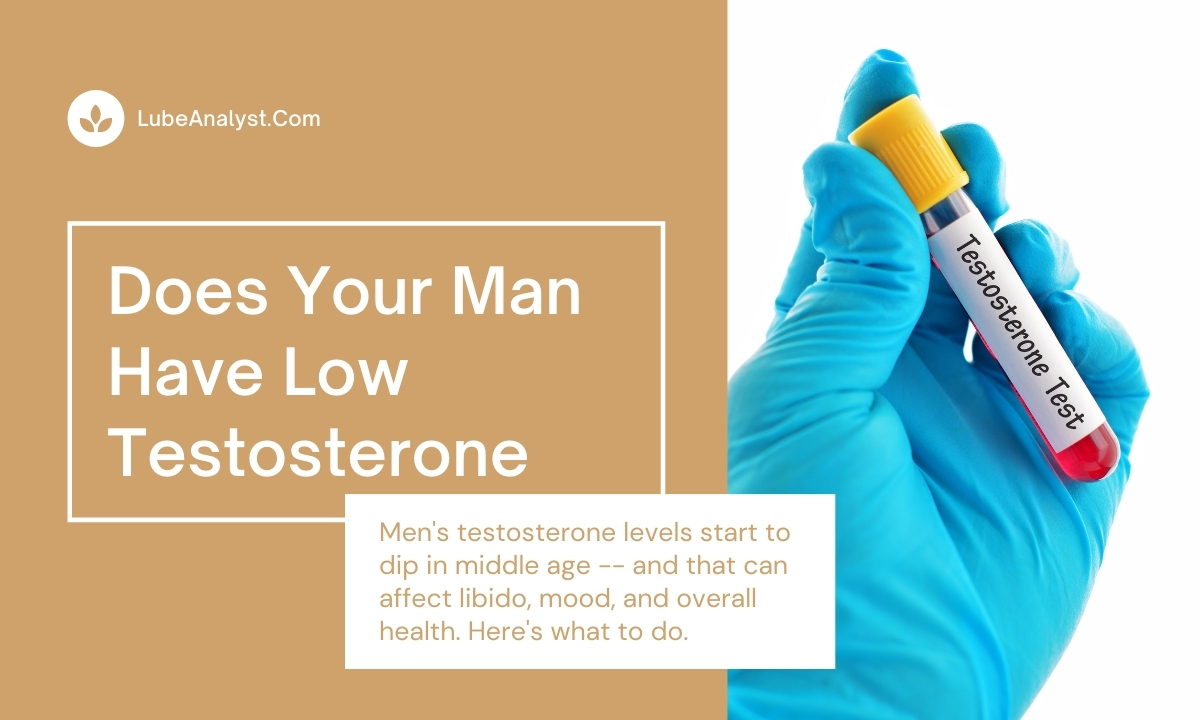Does Low Testosterone Cause Lack of Affection?

Low testosterone levels can affect a person’s sex drive and can lead to a decrease in sexual desire, but it is not necessarily the cause of a lack of affection in a relationship. There can be many reasons for a lack of affection in a relationship, including issues with communication, conflicting needs or expectations, and problems with emotional intimacy.. A lot of education and understanding on your part will help the already bad relationship from getting worse.
The amount of testosterone found in the body has an effect on how people perceive sex. With low levels of testosterone, sex can lead to less arousal and enjoyment, which in turn makes it harder to be affectionate. As a result, intimacy and sexual drive can both suffer.
More than 40% of adult males over the age of 45 years suffer from low T, which can lead to loss of libido or less sexual desire. Research has shown that men who supplement with testosterone experience increased sexual arousal, intensified orgasms, better erection quality, more muscle mass, higher body fat reduction rates when weightlifting, decreased depression symptoms and so on.
All men will eventually have symptoms of low testosterone whether they recognize it or not. Most men recognize the problem when they have a problem with sexual dysfunction, but symptoms start way before this.
One of the most foretelling signs of lower testosterone is a decrease in muscle mass with an increase in fat around the waist while having no change in exercise or eating habits. Along with an increase in fat there is a decrease in energy and libido.
Testosterone levels usually start to decrease after the age of 27 and continues to decrease with aging. What some people may not know is that a decrease in testosterone levels can also effect women and their energy levels.
Does low testosterone cause lack of affection?
Yes, a man with low testosterone levels will have a lowered sex drive. and this can be mistaken for lack of affection. The lack of intimacy may lead to fights, conflicts, and misunderstandings in the relationship; and understandably nothing in a relationship feels worse as feeling unwanted.
So, yes, low testosterone can cause lack of affection. It can also cause a reduction in sex drive. Low T has an adverse effect on sexual function because it decreases the production of nitric oxide which is responsible for dilating blood vessels to provide more oxygen and fuel to the cells that will be used during sex.
However, if you’re willing to do what it takes then naturally boosting your testosterone is not only possible, but it will enhance your sexual experience 100-fold at any age!
Natural supplements such as Testogen have been helping men boost their T for ages.
How to talk to your husband about low testosterone?
First of all, don’t talk about it as ‘his’ problem. Approach it as ‘our problem. Find a time when you are both calm and in good terms to broach the subject. It will also help if you can talk about it without referencing sex only. Use other symptoms of low testosterone such as hair loss and suggest he asks a doctor about it next time he visits a clinic.
Correcting Decreasing Testosterone Levels in Your Boyfriend

To help reduce symptoms of low testosterone levels there are a few things you can do. First an increase of stress and a lack of sleep will decrease testosterone production, so a change in lifestyle may be necessary.
There are also several prescription medications that increase testosterone levels but these should only be used in serious cases because of side effects and potential serious side effects.
Last there are also Natural Testosterone Supplements that are thought to increase testosterone by increasing production through the adrenal glands and increasing uptake of androgen receptors.
To help people with finding a high quality natural testosterone supplement we use an 8 point grading process.
-
Effectiveness
-
Ingredient Quality
-
Safety
-
Consumer Satisfaction
-
Formula Strength
-
Company Reputation
-
Overall Value
-
Cost to Quality

Finding a high quality supplement can be difficult but by doing a little research you can find a product that will produce the results you need for a reasonable price.
There are many symptoms of low testosterone. By knowing what they are and taking the necessary steps to naturally boost testosterone production in your body you will be able to overcome the various problems associated with the condition.
This website will provide you with all the information you need to boost testosterone fast!
Testosterone is produced in both men and women, however, women produce significantly less testosterone than men. Generally about 10%.
Most of the testosterone in men is produced by the leydig cells in the testes with a small amount being produced by the adrenal glands as well. The testosterone is women is produced by the ovaries and adrenals.
Testosterone levels tend to decline quite rapidly from the age of about 35 and a loss of testosterone as we age may be a contributing factor to various diseases common in today’s society.
Also, testosterone has a range of essential functions in the body.
Functions of Testosterone in Men

-
Boosts metabolism
-
Stimulates bone growth
-
Inhibits fat-storing enzymes
-
Promotes the production of red blood cells
-
Increases the storage of glycogen in the liver and muscles
-
Increases fat mobilisation and fat burning in the body
-
Increases protein synthesis (building of lean body tissue, i.e. muscle)
-
Promotes the retention of sodium and water from the kidneys
-
Stimulates bone growth
-
Stimulates sperm production
-
Promotes masculine characteristics, i.e. facial hair, deepening of voice, etc.
Since testosterone has so many essential functions in the body it is absolutely imperative that we do whatever we can to maintain normal-to-high testosterone levels in the body. We will cover exactly what you need to do in a moment.
What are normal levels of testosterone?
There are two types of testosterone in the body are free testosterone (‘active’) and bound testosterone (‘inactive’). Free testosterone makes up between 2 and 4% of the total testosterone with bound testosterone making up the remaining amount. Collectively, they make up the total testosterone level.
Bound testosterone is carried around the body by either Sex Hormone Binding Globulin (SHBG) or albumin. SHBG has a much stronger bond with testosterone than albumin and is therefore harder to break.
A saliva or blood test can be conducted in order to determine the levels of testosterone in the body. Since testosterone levels can fluctuate significantly throughout the day it is best tested first thing in the morning before breakfast.
It is important to be aware that even someone with a normal level of ‘total’ testosterone may still experience the symptoms of low testosterone if their level of ‘free’ testosterone is low.
Here are the normal levels of testosterone for men and women:
-
300 – 1,000 ng/dL is a rough guide to male levels of total testosterone
-
25 – 90 ng/dL is a rough guide to female levels of total testosterone
Remember of course that 2-4% of that amount should be ‘free’ or ‘unbound’ testosterone.
What are the symptoms of low testosterone?

As mentioned previously, testosterone has numerous and wide-ranging functions in the body. Therefore, low testosterone levels can have a variety of symptoms. Here are some of the symptoms of low testosterone that men can experience:
-
Reduced sexual desire
-
Erectile dysfunction (lack of erections or softer erections)
-
Low energy levels
-
Depression
-
Reduced appetite
-
Reduced muscle mass
-
Increased fat mass
-
Less focus
-
Lower levels of enthusiasm
-
Decreased ability to deal with stress
In addition to experiencing the aforementioned symptoms of low testosterone or having a blood or saliva test to determine whether or not you have the condition, you can also answer a simple questionnaire.
The questionnaire is called the Androgen Deficiency in the Ageing Male (ADAM) questionnaire. It was developed by researchers at St. Louis University.
If you answer ‘yes’ to 3 or more of the following questions then it is possible that you have low testosterone and further investigation may be required if you haven’t already done so.
Androgen Deficiency in the Ageing Male (ADAM) questionnaire
-
1. Have you noticed a decrease in your sex drive?
-
2. Do you often lack energy?
-
3. Have you lost strength and/ or endurance?
-
4. Have you lost height?
-
5. Do you feel that life isn’t fun anymore?
-
6. Do you often feel sad and/ or grumpy?
-
7. Do you have difficulty achieving and/ or maintaining an erection?
-
8. Have you noticed a general decline in your physical abilities?
-
9. Are you falling asleep after dinner?
-
10. Has your work performance deteriorated?
Many of the problems mentioned in this questionnaire may be caused by many other factors, not just low testosterone. Therefore, if you have answered ‘yes’ to 3 or more of the questions then it is definitely worthwhile getting accurate, objective tests done to confirm whether or not you have low testosterone.
What causes low testosterone levels?
There are numerous causes of low testosterone and we will cover each cause individually.1
Testicular problems
This is known as primary hypogonadism. It is when the testes are unable to produce sufficient testosterone despite there being adequate amounts of luitenising hormone (LH) circulating in the body. LH is produced by the pituitary gland and under normal circumstances stimulates the testes to produce testosterone.
Primary hypogonadism may have the following causes: undescended testes, scrotal injuries, cancer treatments, mumps, genetic abnormalities (i.e. Klinefelter’s Syndrome), hemochromatosis, and normal ageing.1
Hormonal problems
Hormonal problems originate from the brain, either the pituitary gland or the hypothalamus. Hormonal problems are also known as secondary hypogonadism.
If the hypothalamus is unable to produce enough gonadotropin-releasing hormone (GnRH) (which stimulates the pituitary gland to produce luitenising hormone) then the pituitary will be unable to produce LH. Also, the pituitary gland itself may be unable to produce LH for various other reasons.
Secondary hypogonadism may have the following causes: Kallmann syndrome (abnormal development of the hypothalamus), Pituitary disorders (i.e. tumour), inflammatory diseases, HIV/AIDS, medications, obesity, and stress.
Aromatisation
Aromatisation involves the conversion of testosterone into oestrogen. It results from increased activity of the aromatase enzyme. The process may occur in various tissues throughout the body and increases as a result of alcohol consumption, use of anabolic steroids, high insulin levels, obesity, and age.
High levels of bound testosterone
Bound testosterone is inactive. It is where testosterone is bound to Sex Hormone Binding Globulin (SHBG), a protein that prevents testosterone from binding with various receptors on cell membranes around the body.
Even someone with normal testosterone levels may experience the symptoms of low testosterone if a high proportion of their testosterone is bound testosterone. This may result from ageing, illness, or high levels of other hormones in the body, i.e. oestrogen and/ or thyroxine.
Disease or infection
Certain diseases like HIV, AIDS, tuberculosis, and sarcoidosis may result in inflammation in the hypothalamus and/ or pituitary gland, which may affect the production of hormones necessary for testosterone production.
Drugs (both legal and illegal)
A variety of drugs can also result in low testosterone.2,3,4,5 The types of drugs that have been found to lower testosterone include alcohol, marijuana, opiates, amphetamines, anabolic steroids, antidepressants, and chemotherapy medications.
The drugs lower testosterone production by adversely affecting the hypothalamic-pituitary-testicular axis, sperm production and function, and testicular structure.
Food

It appears that the composition of your diet can play a huge role in testosterone production, particularly when it comes to your consumption of carbohydrate and fat.
A high-carbohydrate/ low-fat diet has the worst effect on testosterone levels. It mainly results from the low intake of fat, which has been shown to suppress testosterone production quite dramatically!8,9,10 Furthermore, the best types of fat to consume to boost testosterone production are monounsaturated fats and saturated fat!11
A chronically high intake of carbohydrates may have testosterone-suppressing effects due to its effects on cortisol13 (high carb intake may cause increase cortisol production) and by promoting insulin resistance.14 However, having an occasional carbohydrate over-feeding, i.e. having a ‘Treat Day’ once a week, is actually a good thing because it has been shown to lower the level of SHBG, which means there will be more free testosterone!15,16,17,18 Furthermore, periodic carbohydrate feedings may also enhance testosterone production in the testes.19
Environmental factors
Men’s testosterone levels around the world have been decreasing significantly over the last few decades.20 Environmental factors are believed to have played a major role. It is likely that due to the number of chemicals pouring into our environment.
It is theorised that throughout our lives our bodies are constantly under ‘xenobiotic attack’. This means that chemicals from our environment are affecting our delicate endocrine system.
Obesity
There is a directly correction between obesity and low testosterone!12 Research has shown that the reduction in testosterone results from adipocytokines, pro-inflammatory cytokines and various hormones that control the HPT axis (hypothalamic pituitary testicular axis).
Despite the fact that there are so many factors that negatively affect our production of testosterone in addition to the fact that it is such an important hormone, there are steps you can take to boost your body’s natural production of testosterone and therefore can avoid having to rely on synthetic hormone replacement therapy.
